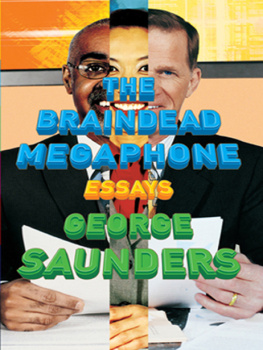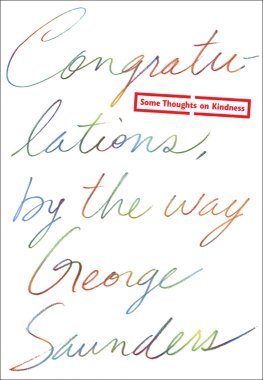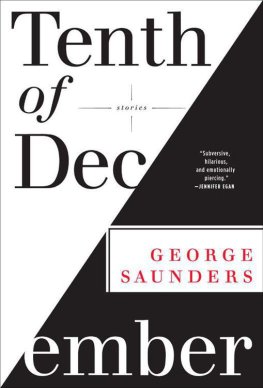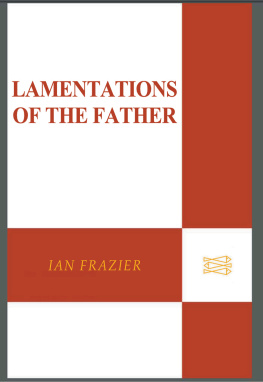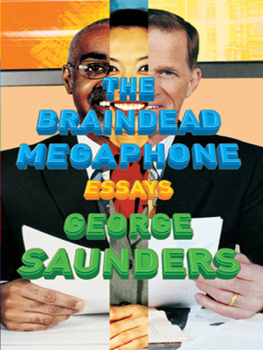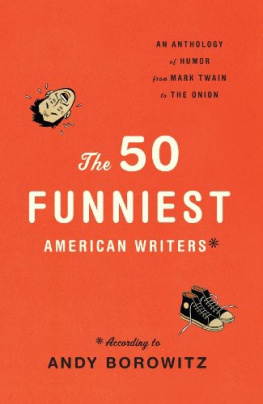ACKNOWLEDGMENTS
Im opposed to long gushy Acknowledgments. But life is short, and the older I get, the more grateful I am. So here goes:
Id like to thank Geoffrey Kloske, the great Sean McDonald (the quiet master of the Excellent Counsel, an untiring advocate for my writing), Larissa Dooley, Heather Connor, Craig Burke, Benjamin Gibson, Rodrigo Corral, Michael Schmelling, Jennifer Eck, Kimberly Johnson, and everybody else at Riverhead Books, which is the literary home I dreamed of long ago when I started writing; At ICM: the great Esther Newberg, Josie Freedman, Chris Earle, Liz Farrell, Kari Stuart, Michael McCarthy, Buddy Thomas, and Kate Jones, who represent me as if they were me, if I were better at math and not such a pushover; David Remnick, Deborah Treisman, Susan Morrison, Rhonda Sherman, and my whole beloved extended family at the New Yorker ; Jim Nelson, Andy Ward (my guide through the travel pieces, a phenom of generosity and positive vision), Ben Phelan, Greg Veis, Raha Naddaf, and everyone at GQ for making the last two years such a surprise and a delight; thanks to Caitlin Saunders for the author photo; all of the great people at Bloomsbury: Alexandra Pringle, Mike Jones, and Anya Rosenberg; Merope Mills and Bob Granleese and everyone at the Guardian ; Meghan ORourke at Slate ; the generous people, too many to name here, who helped me on my GQ trips, especially: (in Nepal) the wonderful Subel Bhandari and (along the Mexican border): Katie Founds, Dan Garibay, John and Abby Garland, Karen Spicher, Melissa Barkin, the Rodriguez family (you know who you are), Lupe Aguilar, Sam Tyx, Cynta de Narvaez, and the Minutemen, especially Al.
Id also like to thank my colleagues and students (past, current, and future) in the Syracuse University Creative Writing Program: the greatest place to teach in the world, in no small part because of the unfailing support of the College of Arts and Sciences and our Dean, Cathryn Newton.
Also, I would like to thank the MacArthur Foundation, the Guggenheim Foundation, and the Lannan Foundation: it would be impossible to overstate how much your generous support has meant to me and my family.
On the personal front, Id like to acknowledge and thank my sisters Nancy (who did such a great thing for NM) and Jane (my funny pal, aka Hane, who is very sentimental, and is probably crying right now as she reads this); Joe and Sheri Lindbloom, who did so much to teach me early on that ideas mattered, and especially my grandmother Marie Saunders, who has been, since my earliest memory, a model of loving kindness. Id also like to thank my best friend, Pat Pacino. Weve debated and discussed and developed many of the ideas in this book over the years, in various places and contexts, and Im grateful to have such a dedicated, brilliant friend. Let us chicken-walk together, vigorously debating, to the grave, but not yet.
Finally, unending thanks to Paula, Caitlin, and Alena, who not only encouraged me to do the trips described in this book, but in one case even forced me (thanks, Alena), then listened lovingly to my incoherent ramblings afterward. These were beautiful, life-changing experiences that wouldnt have been anywhere near as wonderful if I hadnt known that the three of you were waiting for me at home, rooting for me.
And although Ive thanked you above, and because I could never thank you enough: Paula, Paula, Paula. Odd to thank the air one breathes, but crazy not to.
THE BRAINDEAD MEGAPHONE
I find myself thinking of a guy standing in a field in the year 1200 doing whatever it is people in 1200 did while standing in fields. Im thinking about his mind, wondering whats in it. Whats he talking about in that tape-loop in his head? Whos he arguing with? From whom is he defending himself, to whom is he rationalizing his actions?
Im wondering, in other words, if his mental experience of life is different in any essential way from mine.
What I have in common with this guy, I suspect, is that a lot of our mental dialogue is with people we know: our parents, wives, kids, neighbors.
Where I suspect we part ways is in the number and nature of the conversations we have with people weve never met.
He probably does some talking to his gods, his ancestors, mythological beings, historical figures. So do I. But there is a category of people I mentally converse with that he does not: people from far away, whove arrived in the mind, with various agendas, via high-tech sources.
I suspect that you also have these people in your mind; in fact, as you read this (sorry, sorry) I am become one of them.
Is this difference between us and Mr. or Ms. 1200 a good thing or a bad thing? Im not sure. For now, lets just acknowledge it as a difference ; a change in what human beings are asking their minds to do on a daily basis.
Imagine a party. The guests, from all walks of life, are not negligible. Theyve been around: theyve lived, suffered, own businesses, have real areas of expertise. Theyre talking about things that interest them, giving and taking subtle correction. Certain submerged concerns are coming to the surface andsurprise, pleasant surprisebeing confirmed and seconded and assuaged by other people whove been feeling the same way.
Then a guy walks in with a megaphone. Hes not the smartest person at the party, or the most experienced, or the most articulate.
But hes got that megaphone.
Say he starts talking about how much he loves early mornings in spring. What happens? Well, people turn to listen. It would be hard not to. Its only polite. And soon, in their small groups, the guests may find themselves talking about early spring mornings. Or, more correctly, about the validity of Megaphone Guys ideas about early spring mornings. Some are agreeing with him, some disagreeingbut because hes so loud, their conversations will begin to react to what hes saying. As he changes topics, so do they. If he continually uses the phrase at the end of the day, they start using it too. If he weaves into his arguments the assumption that the west side of the room is preferable to the east, a slow westward drift will begin.
These responses are predicated not on his intelligence, his unique experience of the world, his powers of contemplation, or his ability with language, but on the volume and omnipresence of his narrating voice.
His main characteristic is his dominance. He crowds the other voices out. His rhetoric becomes the central rhetoric because of its unavoidability.
In time, Megaphone Guy will ruin the party. The guests will stop believing in their value as guests, and come to see their main role as reactors-to-the-Guy. Theyll stop doing what guests are supposed to do: keep the conversation going per their own interests and concerns. Theyll become passive, stop believing in the validity of their own impressions. They may not even notice theyve started speaking in his diction, that their thoughts are being limned by his. Whats important to him will come to seem important to them.
Weve said Megaphone Guy isnt the smartest, or most articulate, or most experienced person at the partybut what if the situation is even worse than this?
Lets say he hasnt carefully considered the things hes saying. Hes basically just blurting things out. And even with the megaphone, he has to shout a little to be heard, which limits the complexity of what he can say. Because he feels he has to be entertaining, he jumps from topic to topic, favoring the conceptual-general (Were eating more cheese cubesand loving it!), the anxiety-or controversy-provoking (Wine running out due to shadowy conspiracy?), the gossipy (Quickie rumored in south bathroom!), and the trivial (Which quadrant of the party room do YOU prefer?).
We consider speech to be the result of thought (we have a thought, then select a sentence with which to express it), but thought also results from speech (as we grope, in words, toward meaning, we discover what we think). This yammering guy has, by forcibly putting his restricted language into the heads of the guests, affected the quality and coloration of the thoughts going on in there.

